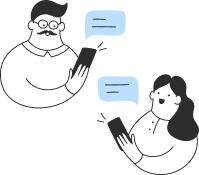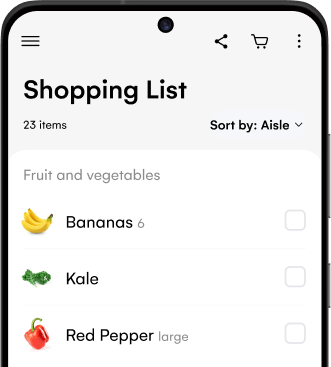Estimated reading time: 7 minutes
Mornings are an ideal time for many people to exercise. You can start your day knowing you have ticked off one of your goals for the day and reap benefits throughout the day. Even after you exercise, your body continues to burn more calories for some time after. It’s a win-win. Except that you’re exercising on an empty stomach – and maybe you’re wondering whether that’s a good thing or not.
Plan meals together! Share this plan with your family

What are the rules around food and fuel? Should you eat something before you head out or should you exercise in a fasted state? Will you be able to perform with no food? And if not, won’t eating give you gastrointestinal problems? Or even worse…the dreaded stitch.
As always, the answer isn’t clear cut. It depends on you. Here’s more about exercising on an empty stomach first thing in the morning and how that can affect your health.

Benefits of exercising on an empty stomach, first thing in the morning
Exercising on an empty stomach is also called fasted cardio. You are considered to be fasting because you haven’t had breakfast.
Many people prefer to work out this way, and it has some benefits, including:
- May burn more calories. Research suggests that when you exercise in the morning before your first meal, you could burn more fat. And lose more weight. A small study of overweight and obese men found that those who exercised with an empty stomach in the morning burned more fat.
- May be more convenient. It may be easier to get into your gym clothes and out of the door than to figure out what to eat before you leave.
- May keep you focused. Being in a fasted state may improve your focus and stamina. You may find it easier to concentrate on your routine when you haven’t eaten yet.
Drawbacks of exercising on an empty stomach
It isn’t all good news though. Sometimes, exercising without eating can cause problems. If you’re not cut out for it, you could find that exercising in a fasted state:
- May lead to exhaustion or ‘bonking’. Exercising on an empty stomach relies on your body’s energy stores. Your body may not be able to mobilize those stores fast enough, and you may be left exhausted.
- May hinder performance. Some research suggests that people who don’t eat before they exercise don’t perform as well as those who do.
- May push your body to burn muscles instead of fat. When you exercise on an empty stomach, your body may also burn muscle to meet your energy needs. This is dangerous because you need muscle mass to stay strong and active.

In summary? Fasted cardio may be a good idea if you are young, have no health conditions and no critical performance goals.
It can also be a good idea if you find it more convenient to exercise before breakfast, and you favor less intense, or shorter routines.
But it doesn’t work for everyone. Some people (such as those older than 50 years and those managing health conditions) should definitely consider eating a small protein-rich snack. And if you find exercise to be a real slog without food, you might need to eat beforehand.
Benefits of eating before exercising in the morning
It’s also possible to grab a snack or meal before you exercise in the morning. If you fall into this camp, there are some definite benefits.
Eating before you hit the gym may:
- Give you more energy. A small meal can provide energy on the go for your work-out.
- Improve your performance. Studies suggest that people do better in intensive and longer activities when they have had something to eat.
- Keep your blood sugar stable. If you are managing diabetes, or you get hungry easily, having a meal can keep your blood sugar stable.
- Allow you to take your medication and stick with your routines. If you take medication or have a routine which involves meals, eating before exercise may be a good idea.
Note that we’re not talking about a huge fry up complete with bacon and eggs here. Nobody would cope well with that! Our tips on choosing what to eat before exercise might help you make food choices which help (not hinder) your exercise regime.
Save time on grocery shopping

Drawbacks of having a meal in the morning before exercising
While eating before, any physical activity has its benefits. It can also have downsides.
For example:
- You may burn less fat than you would on a fasted program.
- You may feel lethargic after meals and less motivated to exercise.
- What you eat before exercising adds up to your daily calorie consumption and might make it harder to have a calorie deficit.
And importantly, some people really struggle to exercise right after eating. You might feel uncomfortable, struggle with nausea or cramps, or just get stitch much more easily than normal. If this sounds familiar, you have to consider how to time your meals around your workouts or vice versa.
Should you should eat before exercising? Factors to consider
As with most things related to your body, there’s no ‘one size fits all’ solution. So how do you know which approach is best for you? It takes a bit of trial and error, unfortunately. That said, there are some factors you can consider as a starting point.
- Your age. If you’re over 50, it may be a good idea to take a light snack before any exercise. If you are younger, you can consider a fasted workout.
- Your health. If you are managing any conditions or taking medication, a small snack can help you keep your blood sugar stable and stick to your medication routine. If not, you might consider exercising with an empty stomach.
- Your goal. If you are training for a big event or athletic performance, having something small to eat help you train longer and perform better. If you don’t have pressing athletic targets to meet, you can consider exercising on a fast instead.
- Your routines. If your exercise program involves an hour of activities or more, or if it’s very intensive, it’s a good idea to get some fuel before you start. If your activities are brief and low to moderate intensity, you may be just fine without anything to eat.
- Your preference. The best exercise plan is the one you can commit to and stick with. If there’s no major reason to choose any of the options, then simply choosing the one you prefer works well too. The idea is to make exercise comfortable, fun and sustainable for you.

Work with what’s right for you
While exercising with food or with an empty stomach may create an interesting research question or locker room poll, in most cases, it doesn’t have a huge impact on your health.
If you are 50 years or older, have a health condition or performance targets, a small meal before working out can be helpful. You can also decide to have a small meal if you find that more comfortable and sustainable.
Exercising in a fasted state is also possible. But it may be best if you are younger than 50 and have no health conditions.
What matters most is getting enough physical activity every week. And doing so in a fun, comfortable, and sustainable way.



